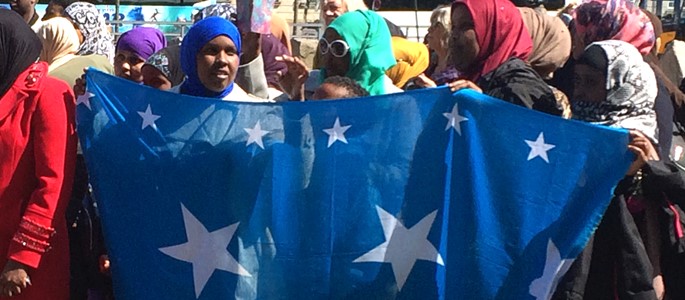Status on the Somali cases
900 out of 1,600 Somalis have lost their residence permit in Denmark and face an uncertain destiny
Immigration Service has almost completed the examination of 1,600 Somali asylum cases and the family cases connected to them. Most of them have been granted asylum after 2012. Status is now, according to Immigration Service, that around 900 of them have lost their residence permit. See the precise figures here (in Danish, and not quite up to date). Many have appealed the decisions to Refugee Appeals Board (asylum) or Immigration Board (family reunification), where they still await a final decision.
The revoked asylum permits and the rejections on extension are due to a perception that general conditions in those parts of Somalia have become (a little) safer. The people in question have been called for new interviews with Immigration Service, and if no individual asylum motives were found, they have been rejected. However, a few have kept their permits because of strong attachment to Denmark in the form of family, work and education – but many have not been long enough in the country to obtain this, as for instance two years of work is not sufficient.
A few permits have also been given based on a new asylum motive: the risk of FGM (female genital mutilation). But in spite of a very sharp critique from the UN Committee for the Rights of the Child against Denmark in February 2018, the Refuge Appeals Board has stated that it will not change its practice of turning down cases where the parents are seen as sufficiently resourceful to be able to prevent the mutilation of their daughters.
A good part of the Somalis have left Denmark after the rejection from Immigration Service, according to our information, and therefore had their cases closed without a final decision. Most of them seem to have headed for Germany, from where they will probably be returned at some point following the Dublin convention, unless they are living under ground.
There is still no return agreement with Somalia, which means that only a handful of single men have been deported during recent years. The vast majority of the 900 rejected, whereof many are children, will presumably be staying in the deportation camps for many years from now. And if the security situation in Somalia deteriorates once again, they might even be entitled to get asylum again one day. A miserable situation, which is the result of a law concerning the revoke of asylum status, passed by the former SR-government in 2015. UN strongly urges Denmark not to revoke the permits of the Somalis.
Read our previous articles on the subject here:
Update on Somali withdrawal cases (16.05.2017)
Somali refugees are expelled on… (01.03.2017)
The government will return… (07.01.2017)
New practice: Somalis lose… (20.09.2016)


